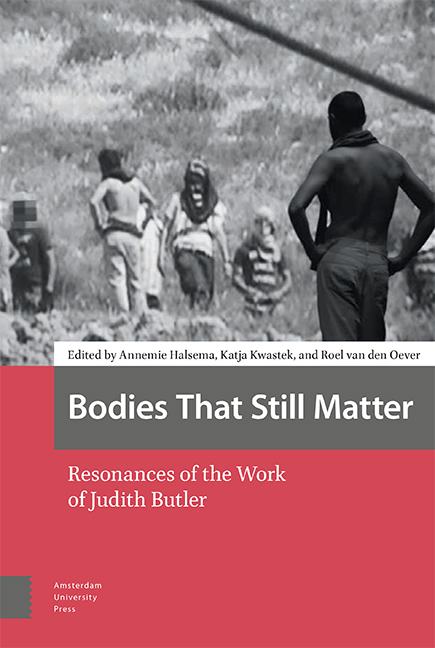Bridging Conversations: “Paradigm Cases” of Dependency in Eva Kittay and Judith Butler
Published online by Cambridge University Press: 27 May 2021
Summary
Abstract
Both Judith Butler and Eva Kittay have formulated an ethics centered around concepts of dependency and vulnerability. However, they take these concepts into divergent normative directions. I trace these differences back to the contrasting empirical examples that inform their respective takes on dependency. Borrowing the words of Eva Kittay, I analyze their arguments in terms of “paradigm cases” of dependency. For Kittay, the paradigm case supporting her thought is a person with profound intellectual and multiple disabilities; for Butler, it is a refugee. Drawing out these paradigm cases brings the theoretical tensions between Butler and Kittay into sharp relief. Rather than resolving them, I suggest using the paradigm cases as heuristic devices to examine dependency in actual care practices.
Keywords: care, dependency, ethics, Judith Butler, Eva Kittay
“Nowadays, perhaps I no longer see my dependency as dependency, because it has been that way for years. So for me it's just self-evident, while for outsiders it could perhaps look like dependency.” This is what Annemiek told me when I interviewed her for my research on the meaning of dependency in the daily lives of people with intellectual disabilities. Annemiek is a woman in her mid-twenties, who works for an academic institute as an experiential expert and research assistant. She uses a wheelchair and is diagnosed with a mild intellectual disability; she lives in an assisted living facility that offers around-the-clock care. What could it mean, I wondered after our conversation, that such seemingly “matter-of-fact” dependencies no longer stand out to her – let alone bother her?
To think through such questions, I turn to debates on dependency and care in and between fields such as liberal political theory (e.g. Nussbaum 2006), continental philosophy (e.g. Butler 2004a), ecophilosophy (Puig de la Bellacasa 2017), disability studies (e.g. Shakespeare 2000; Shildrick 2000), and ethics of care (e.g. Tronto 1993; Kittay 1999). Remarkably, some of these debates still take place in relative isolation from one another. For instance, in the edited volume Vulnerability: New Essays in Ethics and Feminist Philosophy (Mackenzie, Rogers, and Dodds 2014), not one chapter grapples with Judith Butler's writing on vulnerability and precariousness.
- Type
- Chapter
- Information
- Bodies That Still MatterResonances of the Work of Judith Butler, pp. 103 - 112Publisher: Amsterdam University PressPrint publication year: 2021

